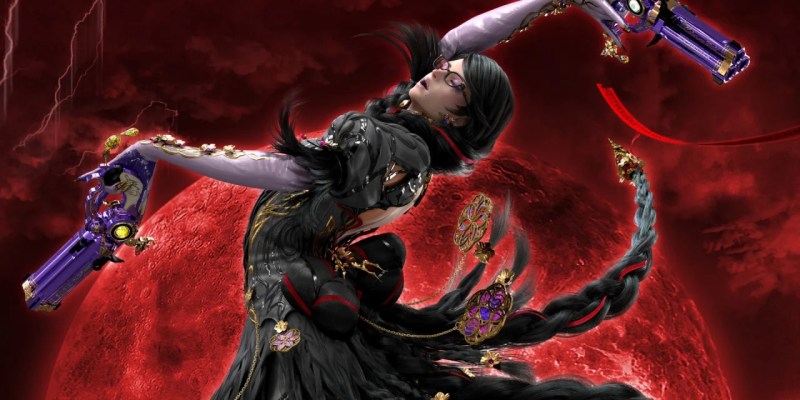When Hellena Taylor, the original English voice actor behind the lead character of PlatinumGames’ Bayonetta video game series, went public this past weekend to call on gamers to boycott the imminent release of the Bayonetta 3, people took notice.
Taylor’s case was a simple one: According to her Twitter videos, she had been replaced as the lead voice actor in the series by noted video game voice actor (and staunch voice actor pay advocate) Jennifer Hale for not being willing to work for a mere $4,000 in total to play the role herself, calling the offer “insulting” and “immoral.”
Friends, Worldlings, Bayonutters. Hear ye!#PlatinumGames #Nintendo #Bayonetta #Bayonetta3 #Bayonutters #Boycott #NintendoEurope #NintendoAmerica #NintendoJapan pic.twitter.com/h9lwiX2bBt
— Hellena Taylor (@hellenataylor) October 15, 2022
Like with all simple cases, though, Taylor’s had a fair few number of complications from the outset.
First and most prominently, Taylor had an information problem: what the Twitter audience she directed her message to might call “a lack of receipts.” While claiming that she didn’t care about any non-disclosure agreement (NDA) that might apply to her, (“What are they going to do, take my clothes?”) she failed to, among other things, (i) provide evidence backing her claim regarding the size of PlatinumGames’ offer, (ii) provide a copy of the letter she said she received from PlatinumGames co-founder Hideki Kamiya, or (iii) reveal what she had requested as fair pay, instead describing it solely as a request for a “decent, dignified, living wage.”
Separately, it’s also worth noting that previous interviews with Taylor indicated that the role in the original game had been recorded in four, 4-hour days, which if matched by Bayonetta 3 would result in an hourly rate of $250 at the $4,000 offer level and matches known union pay scales for such work.
All of these points raised red flags for those familiar with these kinds of public compensation battles. She further claimed complete ownership of the character of Bayonetta, going so far as to suggest that Hale, her replacement, had no right to sign her name as Bayonetta as Taylor had originated the role. While inaccurate, (The intellectual property rights to a created character generally belong to the company.) this put Hale in an awkward position as she has both been at the forefront of the fight for higher voice actor wages and would likely be signed to her own NDA with PlatinumGames — a fact Hellena Taylor would have known due to her own claimed NDA.
Effectively Hale couldn’t speak for herself, and Taylor is very likely to have known that.
From a legal perspective, NDAs are an important piece of any game company in protecting the value of the collective piece of art that is a “video game” as hundreds of people dedicate their craft to getting that game into players’ hands. With some variations across US states and international jurisdictions, the law recognizes this value and commits to enforce promises that a contributor (or potential contributor) to that process makes to keep things quiet, with such a promise often extending to the existence of the NDA itself.
Some online have claimed that such promises are not enforceable or that Hale would have broader rights to disclose what she knows than might be implied by the language of her agreement (which, it should be noted, the public does not have a copy of). However, the plain fact of the matter is that any given breach would at minimum be a risk for the breaching party (as proposed, Hale), and it is unfair to ask a voice actor simply doing their job to try to prove an academic legal point for the satisfaction of the public’s curiosity.
And Hale was bound as such, at least until she decided to go out with a tweet of her own.
About Bayonetta 3: pic.twitter.com/e4VrclEQIm
— Jennifer Hale (@jhaletweets) October 17, 2022
“I am under an NDA and am not at liberty to speak regarding this situation,” she said. “My reputation speaks for itself.”
Indeed it did. And since in all likelihood even acknowledging the NDA would have been a breach of its terms, this simple act was either a brave one in and of itself or specifically permitted by Platinum while facing a PR disaster both internally and for its (new) lead voice actor in Bayonetta 3.
This was not a small thing.
While the story is not yet over, with Taylor’s videos becoming more popular by the day and details still incomplete, journalists have sprung into action to try to fill some of the holes in the public’s understanding. Most notably, Bloomberg has reported that PlatinumGames offered up to $4,000 per session to Taylor with an expectation of there being at least five sessions, while Taylor had countered the company’s offer by asking for six figures and a portion of the profits made from the game’s sales: a version of events that Taylor described as “an absolute lie.”
Obviously, that is a substantial disconnect, but just as players need not take Taylor’s unsubstantiated word on how these Bayonetta 3 voice acting discussions broke down, they don’t need to take Bloomberg’s or Platinum’s word either. In law and in business, you can bet that it’s more complicated than either side generally wants you to believe.
